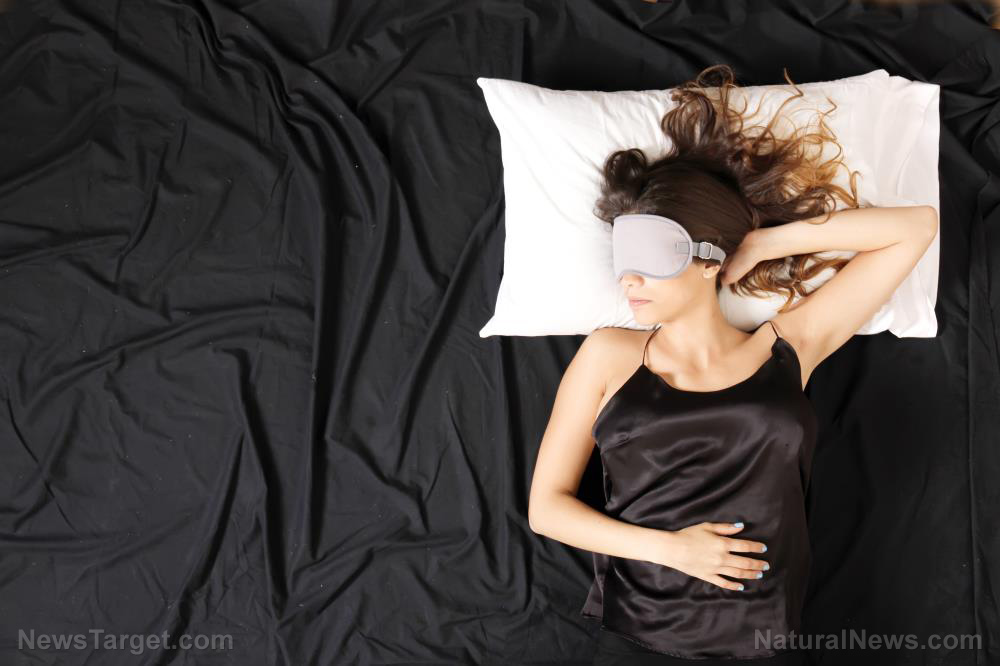Get moving, your brain needs it – study
05/23/2019 / By Edsel Cook

Physical exercise is not just good for building up muscles and endurance. Studies show that working out also improves your brain in many ways.
Many of the positive effects of exercise also extend to the brain. For example, physical activity speeds up the heart rate to deliver more oxygen throughout the body. The brain is one of the parts that benefit from that increase in oxygen levels.
Exercise also spurs the release of beneficial hormones that support the growth of brain cells. A UCLA study held in 2006 showed that physical exercise raised the levels of growth factors in the brain. The growth factors made it easier for neurons to form new connections with each other.
It also improves brain plasticity by encouraging the formation of new links between neurons in critical regions.
Meanwhile, a different experiment – this one conducted by researchers at the Karolinska Institute in 2005 – showed connections between the improvement in mood associated with running and a drop in stress hormone levels. Furthermore, the “runner’s high” feeling encouraged the growth of neurons in the hippocampus, the region of the brain that governed learning and memory. (Related: Physical exercise reduces severity of Alzheimer’s symptoms.)
Physical activity can improve various brain functions
The hippocampus also reacts strongly to aerobic exercise. Understandably, people who did cardio workouts to improve their cardiovascular health also experienced sharper memories.
Separate Dutch and American studies showed that exercise improved concentration. Aerobic workouts increased attention spans, while daily sports classes enhanced multitasking, helped ignore distractions, and made it easier to understand complicated information.
A person’s mental health also benefits from physical exercise. Working out activates the endocannabinoid system that suppresses pain and causes pleasurable sensations. Practicing meditation and yoga every day, for instance, alters the amygdala region of the brain, resulting in significantly lowered levels of perceived stress.
Both aerobic exercise and heavy weightlifting can alleviate the symptoms of depression. The 2013 meta-analysis by the Royal Edinburgh Hospital suggested that “runner’s high” matched the effectiveness of antidepressant drugs and psychological treatments.
Physical exercise contributes to increased creativity. A 2014 study by Stanford researchers indicated that walking improved the ability to think creatively. These creativity-boosting walks could be taken outdoors or on an indoor treadmill.
Whether walking or lifting weights, exercise boosts the brain
Cognitive decline can be slowed down by moderate levels of physical activity. Going for 30-minute-long brisk walks is enough to reduce the wear and tear on the brain that leads to dementia.
Other anti-dementia exercises include lifting weights twice a week or dancing for an hour. The latter, in particular, increases the cognitive well-being of older adults who are vulnerable to neurodegenerative diseases.
By increasing the heart rate, physical exercise can bring more glucose and oxygen to the brain. Exercise maintains the acetylcholine receptors at the connection of muscles and nerves. It stimulates the synapses of the brain.
Moderate physical exercise increases memory and learning. Walking can improve abstract reasoning, learning, and memory. The higher levels of oxygen and nutrients in the brain appear to contribute to these benefits.
Exercise encourages neurogenesis, the growth of new brain cells, even in adult brains that have recently been shown to be capable of producing new neurons. It appears that working out increases the expression of a brain protein called Noggin, which in turn kicks off the neurogenesis process and the production of stem cells.
As mentioned earlier, physical activity can slow down or even stop the loss of cognitive function, especially those that are associated with aging. Physically active people are much less likely to develop Alzheimer’s disease and other age-related neurodegenerative diseases.
Sources include:
Submit a correction >>
Tagged Under:
aerobic exercise, aging, Alzheimer's disease, brain health, dementia, depression, exercise, fitness, memory booster, mental health, mind body science, prevention, slender
This article may contain statements that reflect the opinion of the author
RECENT NEWS & ARTICLES
COPYRIGHT © 2017 BEATDEPRESSION.NEWS
All content posted on this site is protected under Free Speech. BeatDepression.news is not responsible for content written by contributing authors. The information on this site is provided for educational and entertainment purposes only. It is not intended as a substitute for professional advice of any kind. BeatDepression.news assumes no responsibility for the use or misuse of this material. All trademarks, registered trademarks and service marks mentioned on this site are the property of their respective owners.





















